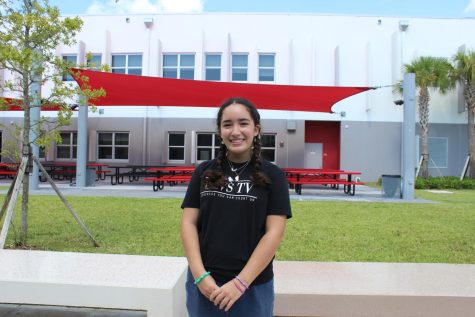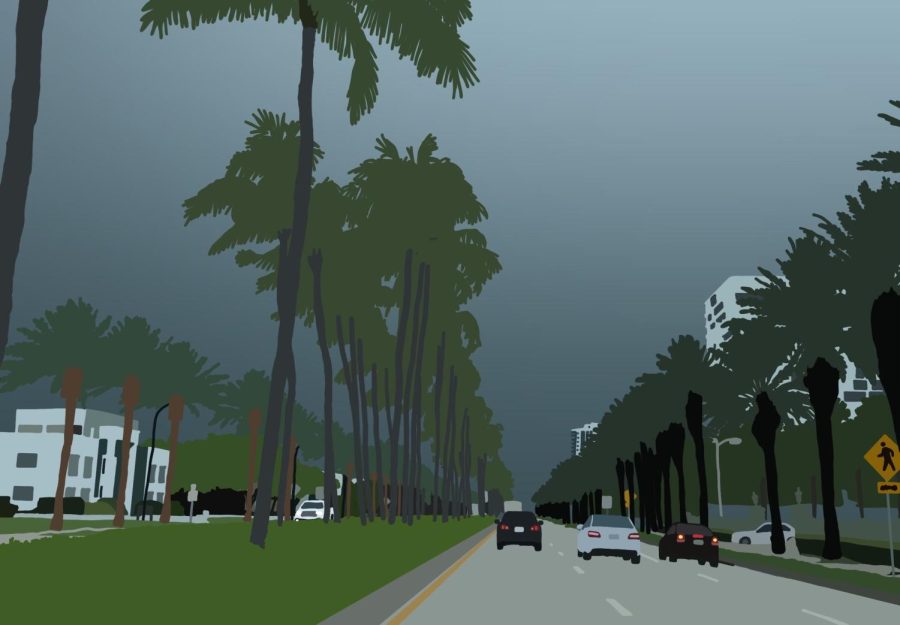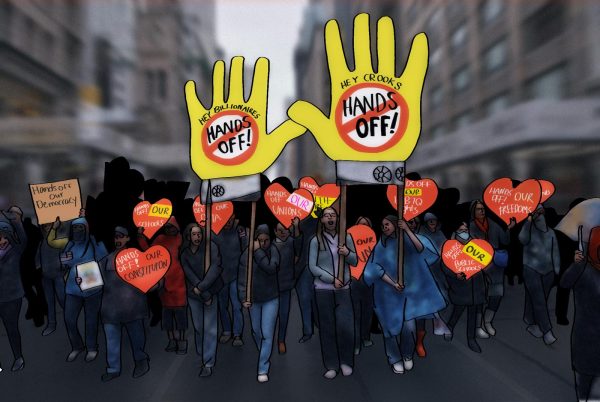Extreme Weather: Florida’s Number One Enemy
As global warming intensifies, the stakes increase for Floridians during Hurricane season.
While climate change may seem like a distant issue to many people, Hurricane Ian and the devastating aftermath it caused demonstrate that Florida is susceptible to extreme weather and devastating heat waves. These are just some of the disastrous effects of global warming that will ravage Florida if this issue is not properly addressed. While many might think Ian was just another hurricane in the books, in reality the climate crisis intensified Ian due to warmer oceans. Extreme weather will continue to strongly impact Florida and will only get worse from here on, so we need to act before it is too late.
Hurricane Ian was a Category 4 storm that created up to 16 feet of storm surge in areas such as Fort Myers and wind speeds at around 250 mph which just completely destroyed houses and infrastructure. It is not a coincidence that this hurricane was so strong; in actuality, the global warming of oceans created the conditions for a hurricane that is unprecedented in strength. Indeed, oceans store much of the carbon dioxide in our atmosphere, so when CO2 increases our oceans become warmer, giving hurricanes such as Ian fuel to become stronger and bigger.
This time South Florida, especially Miami, was lucky to miss Hurricane Ian. However, it is just a matter of time before a hurricane hits our home and wreaks destruction throughout our neighborhoods and schools. Considering school was cancelled during Ian, professionals clearly realize the threat hurricanes are to South Florida. However, the same type of proactive initiatives should be in place when it comes to making our home more resilient in the face of extreme weather.
“I feel if Miami does not invest more in resilience and reducing CO2 emissions not only are we not doing our part but our city, my home will be destroyed by the impacts of climate change such as stronger hurricanes. In order to protect our home I know it is crucial to mitigate and become more resilient towards the climate crisis and its effects,” junior Anabella Rodriguez said.
Extreme weather will only continue to worsen with effects such as extreme heat also dramatically impacting Miami. Extreme heat days are increasing in turn, creating more health issues such as heat exhaustion and making Miami almost unbearable during its warm seasons. Especially for those who do not have air conditioning because in Miami AC is not required in low income housing or prisons. Since humans caused the climate crisis the least we can do is provide for those who will be affected by it most.
In fact, extreme heat is the leading cause for weather related deaths. It can also cause school sports and outside events to be dangerous by increasing the risk of dehydration and heat exhaustion.
“I feel that increased global warming will make only exacerbate the effects of extreme weather on communities that are already being impacted by flooding and are it will lead to climate gentrification for those families who cannot afford to evacuate during hurricanes or migrate to a different part of Florida. Personally, I feel the effects of extreme heat through cross country as it can create heat strokes and heat exhaustion which we often experience while running,” junior Amalia Garrido said.
These issues will continue to persist throughout Florida which is precisely why making Miami more resilient and reducing the effects of climate change are crucial so we can still call this city our home decades from now.
Resiliency measures to protect South Florida from extreme weather and sea level rise must be implemented. Initiatives such as planting mangroves along the coastline will help when it comes to flooding and storm surge. Additionally, “green infrastructure” that can withstand strong hurricane winds and is energy efficient serves as a way to make Miami more resilient and mitigate the effects of climate change.
South Florida needs to adapt to the changes in climate but also mitigate global warming and the amount of greenhouse gases in the atmosphere in order to lessen the effects of the climate crisis. The most effective way of mitigating GHG is through using clean energy such as solar panels; this policy would allow Florida to fully live up to its Sunshine State moniker. Facilities such as schools should be implementing rooftop solar panels including our own Coral Gables Senior High School. We can only truly mitigate the effects of the climate crisis by implementing efficient, renewable sources of clean energy and limiting our reliance on fossil fuels.
Ultimately, South Florida is extremely susceptible to the worst effects of climate change, meaning elected officials have a responsibility to increase resiliency measures and climate mitigation so that when a strong hurricane does hit, this state is prepared. Hurricane Ian was catastrophic for Florida residents, but it will predict the state’s future if constituents and elected officials are not actively combating the climate crisis. For this reason, it is important to be proactive and aware as youth and adults on how to fight climate change; individuals can help create progress through voting for climate policies and speaking up as residents of South Florida. Only through advocacy can we protect the beautiful state of Florida.
Your donation will support the student journalists of Coral Gables Senior High School. Your contribution will help us cover our annual website hosting costs.

Sofia Felan is a junior in the International Baccalaureate program at Coral Gables Senior High. This is her second year with CavsTV drawing featured images,...








